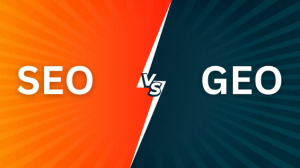If you have an online store, you know it’s not enough to just have it up and running. If your store doesn’t appear in search results, the people who need your products won’t find you. That's where e-commerce SEO steps in. It’s the strategy that ensures your store is visible, drives the right traffic, and most importantly, converts those visitors into customers. With e-commerce sales in the UAE expected to exceed $10 billion by 2025, it's clear that strong SEO is essential for your business’s success. Do you want to know how to get the most out of your e-commerce SEO? Keep reading, because we’re about to show you how it can transform your business.


To fully grasp the contrast between content-driven websites and online stores, take a look at our detailed guide on Ecommerce SEO vs. Normal SEO. It breaks down the different goals, structures, and tactics required for success.
Moreover, the buyer’s journey differs. Traditional SEO often targets TOFU (Top of Funnel) queries like “how to use essential oils.” But eCommerce SEO targets MOFU and BOFU—like “best lavender oil in UAE” or “buy essential oils with free delivery in Dubai.”
And don’t forget automation. E-commerce SEO often uses automated internal linking, dynamic metadata generation, and CMS rules—features not used in typical SEO campaigns.
SEO Ecommerce Meaning؛ Why It Targets Shoppers, Not Just Readers
When we discuss the SEO e-commerce meaning, it’s about targeting keywords that indicate a buying intent, such as “buy Dubai electronics online,” “best UAE fashion store,” or product model names with clear purchase intent. The focus shifts from attracting readers to attracting ready-to-buy shoppers and maximizing conversion rates, not just driving traffic. Many online businesses wonder, Is SEO really worth it? especially when immediate ROI isn't visible. But when your focus shifts from just attracting readers to targeting shoppers with transactional intent, the answer becomes obvious: SEO is an investment in sales, not just traffic. Consider the difference between a user searching “benefits of vitamin C” versus one searching “buy vitamin C serum in Dubai.” The first might be browsing for general information. The second is ready to purchase. E-commerce SEO helps you tap into this buyer intent, aligning your content and structure to capture searchers at the decision stage. It’s also not just about traffic volume. A store getting 5,000 monthly visits but converting 8% can often outperform a blog with 20,000 visits and a 1% conversion. SEO for e-commerce is about attracting qualified traffic, not just more traffic.
Local SEO for E‑commerce: Why It Matters
While many e-commerce businesses focus on national or international audiences, local SEO is a powerful yet often underutilized strategy for targeting customers in specific cities, regions, or countries. Shoppers frequently search with geographic intent, using phrases like:- “Buy gym equipment in Dubai.”
- “organic skincare products in London”
- “Cheap mobile phones in Riyadh”
- Create city- or region-specific landing pages (e.g., /dubai/, /riyadh/, /manchester/).
- Mention service areas clearly across your homepage and footer.
- Use local phone numbers, languages, or currencies where relevant.
- List your business in local directories or Google Business Profile, even if you don’t have a physical store.
SEO for E‑commerce Websites: Key Components You Must Get Right
Effective SEO for E‑commerce Websites requires getting the following elements spot on:- Product keywords and category keywords: Research transactional search terms and integrate them naturally into page titles, URLs, and descriptions.
- Optimized category pages: Provide unique, helpful copy that guides shoppers and targets broader buyer intent.
- Schema markup: Use product schema (JSON‑LD) to provide Google with product name, price, availability, ratings—unlocking rich snippets and better visibility
- Technical internal linking: Clear hierarchies and breadcrumb navigation help boost link equity and usability
E‑Commerce SEO KPIs: How to Measure What Matters
Every SEO strategy needs clear goals, and e-commerce SEO is no exception. Tracking the right KPIs (Key Performance Indicators) ensures you're not just driving traffic but increasing sales and ROI. Here are the most important KPIs for e-commerce SEO:- Organic Revenue: Total sales generated from organic (non-paid) traffic. This is the most critical metric for ROI.
- Conversion Rate (Organic Only): Percentage of organic sessions that result in a purchase.
- Keyword Rankings: Especially for high-intent, transactional keywords targeting products and categories.
- Click-Through Rate (CTR): From Google search results to your site can be improved with optimized meta titles and product schema.
- Bounce Rate on Product Pages: High bounce rates may indicate poor product copy, slow speed, or UX issues.
- Average Order Value (AOV): SEO can improve this via upsells, bundles, or highlighting reviews.

Why SEO for E‑commerce Needs Special Expertise
Handling SEO for an eCommerce site is very different than small-scale or content-focused SEO:- Thousands of pages: You must manage product pages, category pages, tags, filters, and variations at scale.
- Unique content requirement: Avoid thin or duplicate content—each product needs fresh, engaging descriptions tailored to your business and audience
- Canonical tags and URL management: Prevent duplicate indexing from filters or pagination, and ensure preferred versions rank
How SEO for E‑commerce Websites Differs from Traditional SEO?
SEO for online stores differs in several key ways:| Aspect | Traditional SEO | E‑Commerce SEO |
| Primary Goal | Inform or engage the reader | Sell products and convert shoppers |
| Content focus | Article-style, informative content | Product & category pages, transactional keywords |
| Site structure | Smaller, simpler architecture | Large, multi-level, with a clear hierarchy |
| Duplicate content risk | Lower | High (variants, filters, duplicate descriptions) |
| Technical complexity | Moderate | Advanced: schema, faceted navigation, crawl budgets |
Common Issues in Ecommerce SEO That DIY Won’t Fix
Trying to tackle e-commerce SEO in-house or via “DIY” methods often leads to persistent problems:- Thin or duplicate content: Reused or manufacturer-copy pages harm SEO and shopper credibility.
- Slow page speeds: Large images and unoptimized code frustrate mobile users and hurt rankings
- Poor UX or navigation: Inadequate site structure, missing breadcrumbs, or confusing menus reduce conversions and crawlability
Let Experts Handle Your SEO for E‑commerce Websites
If you're running or planning an online store in the UAE, investing in professional e‑commerce SEO is an investment in growth and sustainability. At HDM Agency, we offer tailored services, including:- Strategic keyword targeting for transactional shopper intent.
- Unique product and category content creation.
- Full technical optimization: schema, crawl strategy, and canonicalization.
- UX improvements: mobile-first speeds, simple navigation, and breadcrumbs.
- Conversion rate optimization: internal linking, review platforms, rich snippets.




